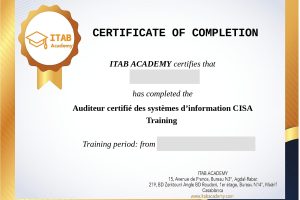Unveiling Insights: The Path to Proficiency in Business Intelligence**
In the era of data-driven decision-making, Business Intelligence (BI) has emerged as a critical asset for organizations seeking to gain a competitive edge and drive strategic growth. Whether you’re an aspiring data analyst, a seasoned business professional, or an entrepreneur looking to harness the power of data, investing in a comprehensive BI formation is essential for success. In this article, we explore the key components of an effective BI training program and how it can empower individuals and organizations to unlock actionable insights, optimize operations, and drive informed decision-making.
**Understanding the Essence of Business Intelligence**
Business Intelligence encompasses a set of methodologies, processes, technologies, and tools aimed at transforming raw data into actionable insights for strategic decision-making. At its core, BI enables organizations to extract, analyze, and visualize data from various sources to identify trends, patterns, and opportunities, ultimately driving business growth and innovation. By leveraging BI, businesses can gain a deeper understanding of their operations, customers, and market dynamics, enabling them to make informed decisions that drive sustainable success.
**Key Components of an Effective BI Formation**
1. **Data Fundamentals**: Begin with a solid foundation in data fundamentals, covering topics such as data types, data sources, data modeling, and data warehousing. Understand the importance of data quality, governance, and security in ensuring reliable and accurate insights for decision-making.
2. **Data Analysis and Visualization**: Dive into the principles of data analysis and visualization, exploring techniques for cleansing, transforming, and analyzing data to uncover actionable insights. Learn how to leverage data visualization tools and techniques to communicate findings effectively and facilitate data-driven decision-making across organizations.
3. **Business Intelligence Tools and Technologies**: Familiarize yourself with popular BI tools and technologies such as Tableau, Power BI, QlikView, and MicroStrategy. Gain hands-on experience with these platforms to develop interactive dashboards, create dynamic reports, and perform ad-hoc analysis to address business challenges and opportunities.
4. **Advanced Analytics Techniques**: Explore advanced analytics techniques such as predictive modeling, forecasting, and machine learning to uncover hidden patterns, predict future trends, and drive proactive decision-making. Understand how to apply statistical methods and algorithms to solve complex business problems and optimize performance.
5. **Data Governance and Ethics**: Understand the importance of data governance and ethics in BI, including principles of data privacy, confidentiality, and compliance. Learn how to establish data governance frameworks, implement best practices for data management, and ensure ethical use of data to maintain trust and integrity.
**Benefits of BI Formation for Individuals and Organizations**
Investing in BI formation offers numerous benefits for both individuals and organizations:
– **Career Advancement**: BI professionals are in high demand, with lucrative career opportunities available in data analysis, business intelligence, data engineering, and related fields. Acquiring BI skills and certifications can enhance job prospects and open doors to new career opportunities.
– **Informed Decision-Making**: BI enables organizations to make informed decisions based on data-driven insights, rather than intuition or guesswork. By leveraging BI, businesses can optimize operations, mitigate risks, and capitalize on opportunities more effectively, leading to improved performance and competitive advantage.
– **Operational Efficiency**: BI helps organizations streamline processes, optimize resources, and improve operational efficiency by providing visibility into key performance indicators (KPIs), trends, and performance metrics. By identifying bottlenecks, inefficiencies, and areas for improvement, businesses can drive operational excellence and achieve cost savings.
– **Strategic Growth and Innovation**: BI empowers organizations to identify market trends, customer preferences, and emerging opportunities, enabling them to innovate and adapt to changing market dynamics. By leveraging BI insights, businesses can develop targeted strategies, launch new products, and enter new markets with confidence, driving sustainable growth and innovation.
**Conclusion**
Mastering Business Intelligence is essential for individuals and organizations seeking to thrive in today’s data-driven world. By investing in a comprehensive BI formation that covers essential concepts, tools, and techniques, individuals can unlock new career opportunities, drive business growth, and make informed decisions that drive sustainable success. With the right skills, knowledge, and mindset, BI professionals can harness the power of data to uncover insights, optimize operations, and drive strategic innovation in today’s dynamic business environment.




